
Circuit Training 111: David Baddiel is still a comedian
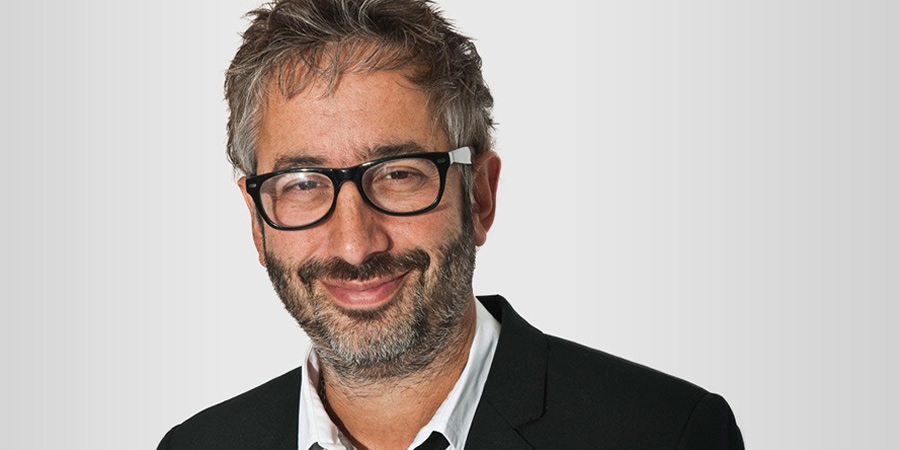
Here's a question: which bit of David Baddiel's now-lengthy career springs quickest to mind, when the name crops up? He's certainly made an impact.
Could it be: him helping to make comedy cool with The Mary Whitehouse Experience, then taking it into arenas with Rob Newman and History Today? Making football funny with Frank Skinner and Fantasy Football League, getting whole stadiums singing with Three Lions, then making the brilliantly simple Unplanned? Or perhaps the novels, scriptwriting and unexpected move into children's books. You'd be surprised how many people today know him for the latter.
Over the last couple of years Baddiel has re-emerged as a live performer too, with his new 'Not The' range of shows, kicking off with Fame: Not the Musical, and now My Family: Not the Sitcom, which he's taking out on tour this very week. It's the remarkable tale of his late mother's extra-curricular romantic exploits, and his father's dementia, which - if you saw David's fine documentary, The Trouble with Dad - you'll know includes some pretty spectacular swearing.
Here we chat about whether that show is still stand-up, wade into some seriously niche aspects of his old stuff, and discuss why on earth he's on social media, given the constant aggro. Baddiel is fairly positive about Twitter here, although shortly after this chat he announced that he was ditching Twitter for a bit, due to a particularly virulent strain of idiocy. "The doors to Cuntworld open," he wrote, "and in they flood."
Great word, terrible theme park.
So, this is your biggest tour for a long time - is that a bit daunting?
Not really. I'm a bit worried about the sheer slog at my age - if I can use the phrase 'my age' - but it's not too bad as its not as back-to-back as I used to do, back in the day when I was touring with Rob Newman or on my own, 14 nights in a row or whatever.
And it seems to be doing quite well, that's a key thing. When you turn up in Shrewsbury and play to 30 people, that's the depressing part of touring.
Do you get people thinking you'll be doing the old type of stuff?
Not with this show, I think people do know what it is, although they are taken aback by one thing: they think it's about my dad's dementia, and it is, but that's really the subplot. It's mainly about my mum's sex life.
Certainly during the West End run, I could feel it, round about 25 minutes in when I'm really going in hard about my mum and her obsession with the golfing memorabilia salesman she had an affair with, I'd often stop and say 'those people over there are thinking of leaving, they're saying to each other "I thought it was a lovely serious play about dementia."'
The idea that it's a play has always confused me. People still write to me and say 'looking forward to seeing your play.' It pushes the boundaries of what stand-up is, but it is stand-up.
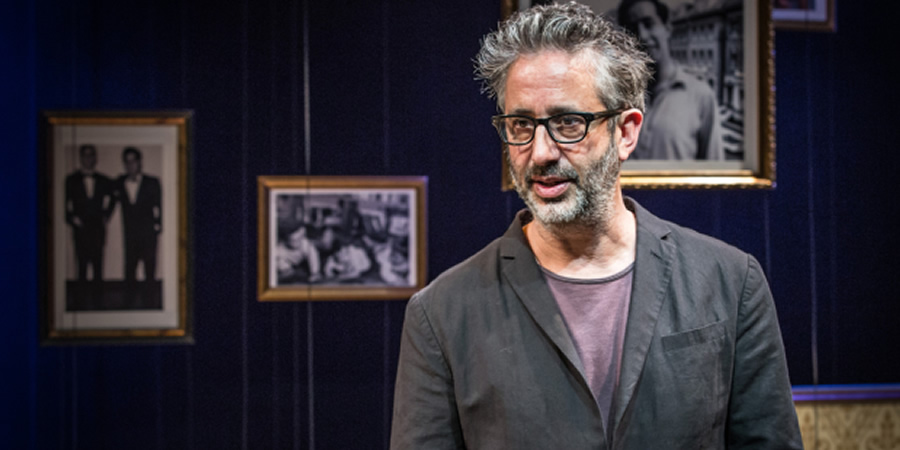
Stand-up does include a lot of different styles these days.
This is me telling stories about my parents, and includes a screen; there's PowerPoint and I show films to illustrate what I'm talking about - but it's me talking about my parents and my life, it's a comedy show. It does include some sad moments, but again those are just to make the stories work, they're to do with storytelling.
I paint this picture about my parents, and then I want to slightly mix it up, and change the idea of who you might think my parents were, and that's a conscious decision. To make the audience think a bit more deeply about it.
I was going to ask if you've had any stick about the show, but I think the wider question is: why are you on Twitter at all? You seem to get constant abuse.
The primary reason, I'm entertained by it and slightly addicted to it, not in a good way. When you're writing - and that's why a lot of writers are on Twitter - it's really easy to have it open.
Today I got into a race with David Schneider to write a joke about Nigel Farage asking for a second referendum. Comedy writers have this sudden opportunity to write very topical jokes about something that's just happened, and its hard not to, you find yourself reflexively doing that.
I also do something else as well: trolls, rather than ignoring them, I treat them like hecklers, and as a comedian my job with a heckler is to put them down entertainingly for the wider audience. So that's what I do on Twitter when I take a down a troll.
It's an interesting way of looking at them, as hecklers...
I'm planning at some point to do a show, possibly later this year, called How to Deal with Trolls, which'll be my next stand-up show. I did think after Fame: Not the Musical and My Family: Not the Sitcom of doing a third one - in the end I decided I haven't got another 'not the.'
I wanted to do a show that's slightly less personal than the last two, just a bit less family secrets and whatever, and more about how we live now. I think you can say quite a lot about that if you look at trolls, the way that they fail to empathise with people; anger and all the rest of it.
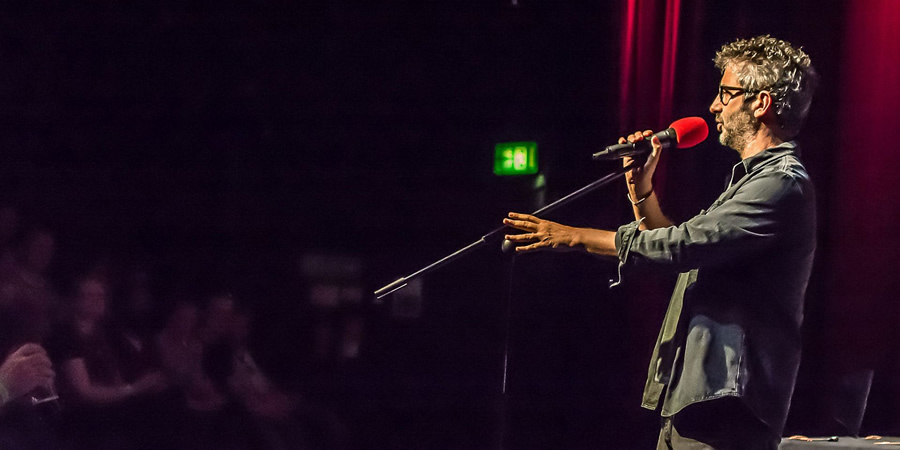
That might be genuinely useful too.
A very powerful thing - particularly if you get attacked by a racist, which happens a lot - is to retweet it, say something funny at their expense, then see them be taken apart by lots of other people. That feels very empowering. Tim Samuels [the filmmaker/broadcaster] said the other day, 'Watching David Baddiel bat off these racists is the nearest we have to Cable Street' - where the Jews fought off fascists in the '30s.
It reminds me of The Death Of Stalin, where [Soviet spoiler alert] they all gang up on Beria - it's almost quite cathartic.
Exactly, banding together to get rid of evil.
It's bizarre to think that Twitter only started a few years ago...
Its extraordinary, the effect it's had, on our culture. The way people talk and the way that they deal with extreme political opinion is incredible.
Our one Twitter exchange was more niche: it was about the cassette you and Rob did, Minutes of the Parish Council Meeting. My brother and I were very fond of the Jimmy Hill sketch.
It's funny that both these formats don't really exist any more, but when our first video came out, I think Avalon [the distributors] said 'it'd be good if the first 10,000 of these have some kind of free gift to kick off the sales a bit.' So we had the idea for something cheap, to go into a studio and get a bit pissed, and just record some sketches - we literally wrote down a couple of ideas and went with them. And in the studio I thought 'why don't I just interview you as Jimmy Hill?'
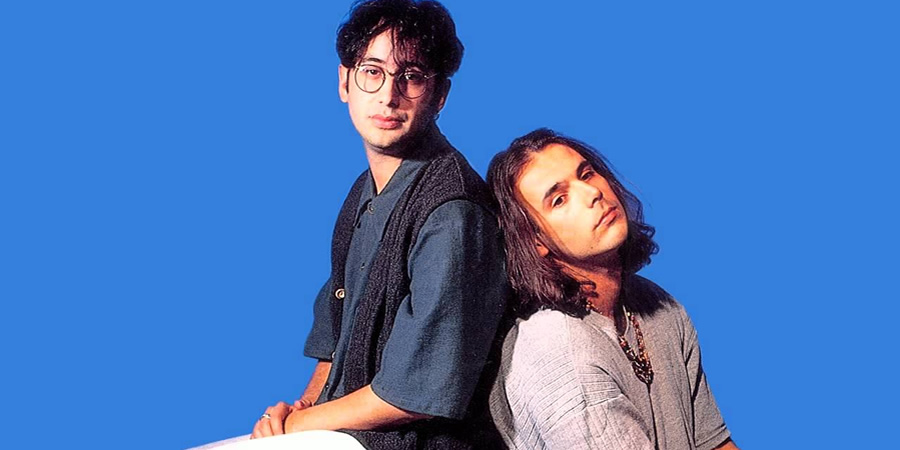
I still use the phrase 'I have a sort of dim awareness' from that sketch [after David asks Rob - as Jimmy - if he realises that people think he's a c*nt] and almost forgot where it came from.
That happens a lot - I see the phrase 'years of hurt' quite a lot in the press these days, about whatever it might be, and that's from Three Lions, no one said anything was 'years of hurt' before. That's quite weird, for it to enter the language.
You were presumably just trying to make that line scan?
Yeah, Simon Munnery once criticised Three Lions by saying "it shouldn't be 'years of hurt', it should be 'years of pain' - you've only said 'hurt' to rhyme with 'shirt.'" And we told him to fuck off.
Why did you stop doing stand-up years ago? Were you just too busy with other things?
No, I think it was just exhaustion, I'd done it a lot, I started doing stand-up in 1986 properly - I'd done it at uni as well, in the Cambridge Footlights - no one else had done stand-up at that point, in Footlights. Then I did it on the London cabaret circuit for five years, then all through Newman & Baddiel, I'd do an hour of stand-up, then we'd come out and do a few sketches.
Then my own tour in '97, and I felt at that point, I'd been doing it for over a decade and it's a very psychologically exhausting thing to do, and 'ooh god now I've got children, I don't know if I can emotionally deal with that and be away.' And I wanted to do other stuff, write books and films, so I hadn't intended to come back to it. I didn't feel like 'oh I really miss being on stage.'
So how did it come about?
What happened was, with Fame: Not the Musical, I was asked to do a thing called 5x15, which is like a Ted Talk, so I decided to do it about fame, in 2013. I literally wrote it just as a talk, not as stand-up, but it got loads of laughs, so I thought 'oh that's interesting.'
As a stand-up show, I didn't crowbar in jokes like I would do in the old days to get as many laughs as possible, and I've taken that style into this show as well. The whole show is about my family, I don't go 'and now a bit about Brexit' that I'm gonna pretend is about my family.
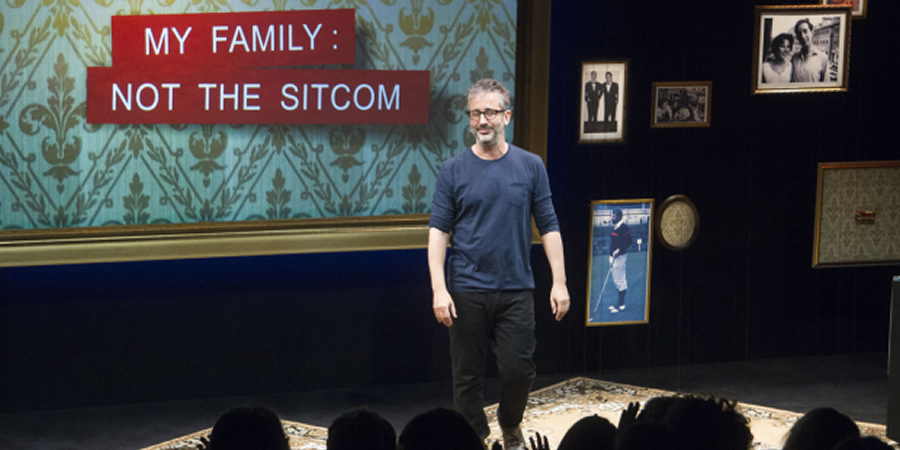
Is it a whole different process than before?
It's not a whole different process, it is different. This is a crap phrase, but I think it's true: it feels slightly more age-appropriate. If I was going to come back on stage at, what, 48, I couldn't come back and just do banter about this, that and the other - I felt like I've got to have something to say, and that felt to me correct about it, that after people saw that show they would come away and say stuff to me, interesting stuff about what they thought I was trying to say. With this show, that's happened times ten.
The nice thing about comedy for me, it covers everything. Think of a subject, like dementia, there's probably a comedian writing material about it.
I think that's partly because we live in a culture now where very little is straightforwardly dealt with, everyone's trying to find a 'take' on whatever it might be, and funny is always an interesting take, on politics, sex, death or whatever. Nobody wants to go and hear a straightforward thing about it, they want to hear an interesting, unusual and diverse take on it, and comedy is a good way into that.
There's some tough stuff in this show, but it's not a tough show to go to, it's a feelgood show if anything. It's not necesarily easy to talk about dementia and infidelity and your mother's death, but somehow or other laughter makes it digestible.
Did the Channel 4 documentary come off the back of this show?
I'd just started doing the show then, workshops for it, and a production company got in touch and said 'can we do a film about your dad' - the show obviously is more about my mum. And I wasn't sure at all about doing a film about my dad, because I thought, well, in the stand-up shows I'm very in control of my dad's story, and how he comes across, and I don't know if I'd be able to do that in a documentary.
But in the end I was allowed a lot of control over that, and as a result I think, again, it's about saying 'look, here are these people, one of them's dead, one's got dementia, and when that happens to people, who they actually are gets erased out of existence.'
People start talking about dead people - and people who are very ill - as if they were wonderful, and those things aren't true. Both my parents were nutters: here's who they actually were. I think my dad is like that in the documentary, you got a real sense of who he actually is, and that's what I was interested in.
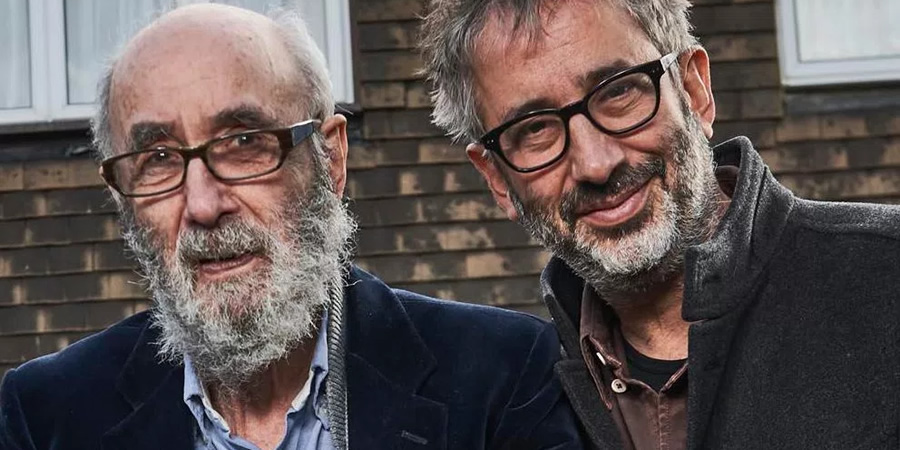
Until I looked into it for a piece recently, I didn't have a clue: I assumed Alzheimer's was just another word for dementia, but it's just one of many conditions.
There are a number of them, and it very much depends on what part of the brain is most affected by it. So that was one of the main things - when my dad got dementia it was so different from my idea of what dementia was, from seeing it on telly - it needs to be talked about. And it's funny how he is - it's awful, but it's also funny. And the complexity of that can only be rendered in comedy, I think, comedy is the only thing that can hold together stuff like that.
A lot more people must have watched it because you were in it, who maybe wouldn't have watched a regular documentary.
Definitely, it was watched by over two million people, and that was really great for a documentary about dementia. But also it's a human story - it was about dementia, about Pick's Disease, and it was instructive, but I think primarily it was a human story - about men, trying to deal with this difficult emotional stuff, and dealing with it partly through banter, through comedy.
So you're working on the new stand-up show - any other projects?
I've got a TV version of this show, that I've written, that's been optioned for TV, and my radio show, David Baddiel Tries To Understand, will be coming back at some point over the year. But it's this and the children's books mainly at the moment.
I don't suppose you thought you'd be writing children's books, 20 years ago.
No, I didn't think I'd be doing that, but they've been incredibly successful, is what's happened there. I wasn't trying to be a children's author, but I had an idea that my son basically gave me one day, about a world in which children can choose their own parents, I wrote that and it sold nearly half a million copies. And then I thought 'oh well, this is good!'
Also, I'm of the opinion that the space for children is very different to what it was when I was growing up, because now The Simpsons and Pixar movies, The Amazing World of Gumball on Cartoon Network, and many other things - they're just so funny, and probably funnier than most 'adult' TV shows.
I think what's happened over time is that children have become lots more sophisticated, and adults have become more infantile, and there's a lot of space in between where a lot of really good stuff happens. I like to think that my children's books are in that Venn diagram.
Help us publish more great content by becoming a BCG Supporter. You'll be backing our mission to champion, celebrate and promote British comedy in all its forms: past, present and future.
We understand times are tough, but if you believe in the power of laughter we'd be honoured to have you join us. Advertising doesn't cover our costs, so every single donation matters and is put to good use. Thank you.
Love comedy? Find out more